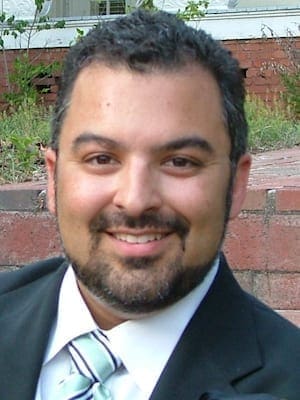We are often unaware of the influences that shape our thinking.
I taught a class recently at Palm Beach Atlantic University about worldviews, seeking to encourage graduating seniors to articulate, further define or develop a Christian worldview that sees not as the world sees, but as Jesus sees.
It is a lens through which we interpret the world and our place in it whereby the Bible is true, God is real and an ethic of God’s activity on earth determines the boundaries of our thoughts, behaviors and actions.
You will be surprised to know how few Christians reflect on how they see their world and whether they see it as Christ sees.
Much of this depends on our values growing up, but it’s also shaped and formed by our experiences of church, Bible study and public engagement.
Here are four thoughts I have pushed in my class:
1. Our worldview and our view of who we are in the world largely rest on our view of who God is and how we believe God relates to us.
For instance, if you believe that God is mean and judgmental, you will likely see the world as a hostile place only worthy of wrath and doom.
However, if you see God as an ever-loving and intimate Creator, there is something to be said about the world that is worth saving.
If God gave Jesus to die on the cross for the whole world, it is worth the gospel message indeed.
2. How we treat others – from strangers to enemies – rests on how we see them as either beloved or alienated by God.
If you have a worldview that takes Genesis seriously, then it is logical to posit that all people – to the most depraved to the saints among us – are made in God’s image.
God knows each person well; and, because of that, each person has the potential to experience the saving love of Christ and find redemption at the foot of the cross.
But if we are too busy judging people or ignoring them or killing them, how will they ever have a chance to hear the Gospel or experience Christ’s love through us?
3. Our debates, whether theological or political or whatever, depend on where we stand and how we see the world.
If we grew up on the island of Guam, for instance, we may believe in our earliest years that the world has a scarcity of land and an abundance of water, whereas if we grew up in, say, the Gobi Desert, we may believe the opposite.
Bring these two citizens together and two worlds collide: How will we shape public policy when we believe that two divergent resources are scarce? Our debates must consider our worldviews.
4. We have assumptions and presuppositions that have never been tested and, in many cases, never scrutinized by the lordship of Christ and the authority of Scripture.
A large portion of my time in class is helping students figure out why they believe, talk and act as they do.
One of their assignments is to present a 15-minute conversation on an ethical conundrum with which they struggle. A majority of time is not spent on ethics, but their assumptions that have shaped their ethics on the subject.
We deal with what philosophers call first-order beliefs, which ultimately determine our actions (second-order and third-order beliefs). It is amazing how little we think critically about our own convictions.
As we journey through Eastertide (the season from Easter Sunday to Pentecost Sunday), it might be worthwhile asking the hard question of how our Easter faith informs our lives.
Is our faith so private that it has no bearing on our public life? Can people even tell that we are Christians by our behaviors, words and deeds?
Is our faith so individualized that it has become irrelevant in shaping both Christian community and our public witness in secular society?
These questions are important; we wrestle with them every Sunday, and it’s part of the work of the church.
But let us not avoid them just because they may frighten us. Remember, “the fear of the Lord is the beginning of wisdom” (Proverbs 9:10).
Joe LaGuardia is senior pastor of First Baptist Church in Vero Beach, Florida. He is the author of “Awe and Trembling: Reflections for the Christian Journey,” a book of articles and homilies. A version of this article first appeared on his blog, Baptist Spirituality. It is used with permission.
Joe LaGuardia is senior pastor of First Baptist Church in Vero Beach, Florida.

